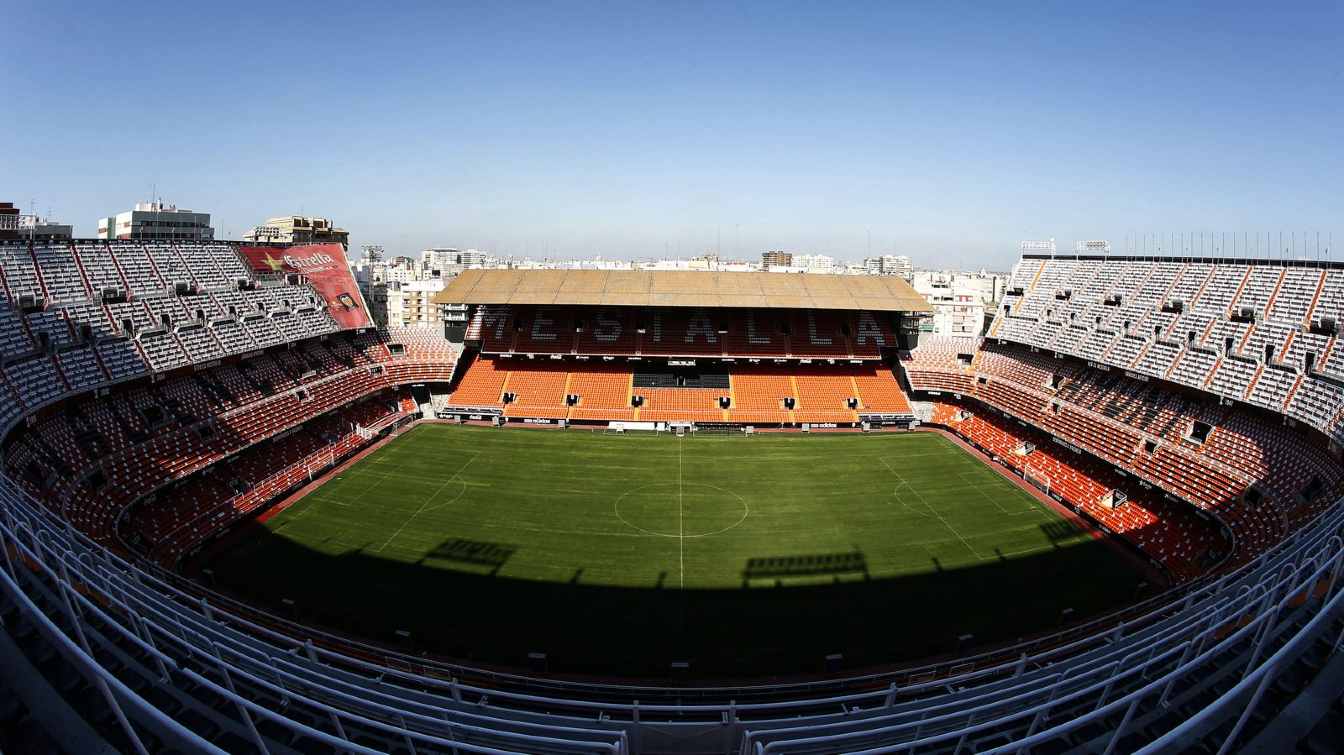Spain: From history to modernity – Valencia CF and two-stadium dilemma
source: StadiumDB.com; author: Paulina Skóra
 Valencia CF currently stands at a crossroads. On one side lies the future, embodied by the modern Nou Mestalla; on the other – history and identity, deeply rooted in the current Mestalla stadium, which has been at the heart of the club’s sporting and emotional life for over a century.
Valencia CF currently stands at a crossroads. On one side lies the future, embodied by the modern Nou Mestalla; on the other – history and identity, deeply rooted in the current Mestalla stadium, which has been at the heart of the club’s sporting and emotional life for over a century.
Advertisement
Strategic shift – more fans, higher revenues
In a notable shift in its ticketing strategy, Valencia CF plans to release 3,000 new season tickets for the 2025/2026 campaign, increasing the total number to 40,000. This marks a departure from previous seasons, during which no new subscriptions were offered. The decision is seen as a transitional step ahead of the planned move to Nou Mestalla in the summer of 2027. The previous strategy, aimed at balancing matchday attendance with ticket revenue, proved effective. The club recorded a 20% increase in ticket income compared to the prior season.
During the last season, the club reached 37,000 season ticket holders and an average attendance of 43,318 per match. Nine league games achieved technical sold out
status – leaving only a handful of isolated seats or hospitality suites available. On average, 8,200 single-match tickets were sold per game, primarily via online platforms.
Multidimensional plan
The rise in stadium attendance has been driven not only by fan loyalty, but also by a comprehensive marketing and commercial strategy. Valencia CF has implemented a cross-departmental plan involving ticketing, communications, business intelligence, and supporter relations. The initiative has gained significance amid reduced broadcasting revenue and the absence of European competition, with 25–30% of club income now derived from season tickets and matchday sales.
 © valenciacf.es | Mestalla
© valenciacf.es | Mestalla
Matchday experience as a product
The matchday experience at Mestalla continues to be a major asset. The club has introduced several measures to improve accessibility and fan engagement. Tickets go on sale each August, even before the full match calendar is confirmed, and the online sales system has been upgraded to enhance seat selection and payment options. A dynamic pricing model, reflecting demand, availability, and fixture timing, has also been implemented.
These efforts have led to a substantial increase in ticket and subscription revenues. Compared to the 2023/24 season, the club has seen a 20% growth. Since 2018/19, despite fewer home games, the increase stands at 50%. When compared to 2016/17 and 2013/14, the growth is even more striking – 120% and 160%, respectively.
The club also sees untapped potential in its Asiento libre
system, which allows season ticket holders to release their seats when unable to attend. Currently, only about 25% of fans use this option, indicating room for further revenue and attendance growth. Despite external constraints, Valencia CF is strengthening its financial resilience and fan engagement.
 © Fenwick Iribarren Architects / Valencia CF | Design of Nou Mestalla
© Fenwick Iribarren Architects / Valencia CF | Design of Nou Mestalla
New entity joins Nou Mestalla construction
Valencia CF has signed an agreement with SGS, a global leader in inspection, verification, testing, and certification. SGS will act as an independent third party, supervising and certifying each stage of the Nou Mestalla project, ensuring regulatory compliance, construction quality, and adherence to the established budget and schedule.
Oversight and safety as priorities
SGS will also assume the role of Dirección de Ejecución de Obra (DEO), as required by Spanish construction law (LOE). This includes technical oversight of all construction activities. Furthermore, SGS will serve as the Coordinador de Seguridad y Salud (CSS), ensuring all health and safety protocols on site are rigorously followed.
 © Amunt Mestalla | Construction of Nou Mestalla
© Amunt Mestalla | Construction of Nou Mestalla
Ongoing opposition to Nou Mestalla
Despite progress, public debate over the project continues. The supporter group Libertad VCF recently held a forum to revive discussion on Mestalla’s future, in cooperation with civic organisations úvaM and Juristes Valencians. Architect Manuel Pascual, who oversaw Mestalla’s 1982 renovation, proposed a roofed redevelopment of the current stadium to a 65,000-seat capacity, suggesting a new build may be unnecessary.
Participants argued that nearly two decades after the new stadium’s initial model was unveiled, it has become more of a burden than a dream. Journalist Sid Lowe, one of the panelists, emphasized the irreplaceable emotional value tied to the current stadium. The Goerlich Foundation criticised plans to demolish Mestalla, referencing previous heritage losses in Valencia. Meanwhile, engineer Rafa Rueda claimed that 88.5% of seats in the proposed Nou Mestalla would offer suboptimal viewing comfort.
Advertisement
 StadiumDB
StadiumDB